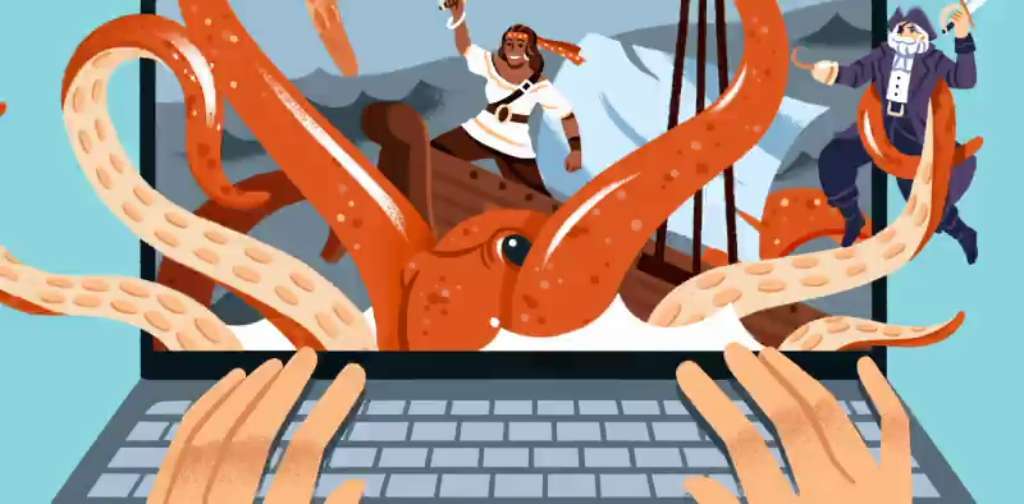Creative Writing Prompts
When the idea to start a weekly newsletter with writing inspiration first came to us, we decided that we wanted to do more than provide people with topics to write about. We wanted to try and help authors form a regular writing habit and also give them a place to proudly display their work. So we started the weekly Creative Writing Prompts newsletter. Since then, Prompts has grown to a community of more than 450,000 authors, complete with its own literary magazine, Prompted.
Here's how our contest works: every Friday, we send out a newsletter containing five creative writing prompts. Each week, the story ideas center around a different theme. Authors then have one week — until the following Friday — to submit a short story based on one of our prompts. A winner is picked each week to win $250 and is highlighted on our Reedsy Prompts page.
Interested in participating in our short story contest? Sign up here for more information! Or you can check out our full Terms of Use and our FAQ page.
Why we love creative writing prompts
If you've ever sat in front of a computer or notebook and felt the urge to start creating worlds, characters, and storylines — all the while finding yourself unable to do so — then you've met the author's age-old foe: writer's block. There's nothing more frustrating than finding the time but not the words to be creative. Enter our directory! If you're ready to kick writer's block to the curb and finally get started on your short story or novel, these unique story ideas might just be your ticket.
This list of 1800+ creative writing prompts has been created by the Reedsy team to help you develop a rock-solid writing routine. As all aspiring authors know, this is the #1 challenge — and solution! — for reaching your literary goals. Feel free to filter through different genres, which include...
Dramatic — If you want to make people laugh and cry within the same story, this might be your genre.
Funny — Whether satire or slapstick, this is an opportunity to write with your funny bone.
Romance — One of the most popular commercial genres out there. Check out these story ideas out if you love writing about love.
Fantasy — The beauty of this genre is that the possibilities are as endless as your imagination.
Dystopian – Explore the shadowy side of human nature and contemporary technology in dark speculative fiction.
Mystery — From whodunnits to cozy mysteries, it's time to bring out your inner detective.
Thriller and Suspense — There's nothing like a page-turner that elicits a gasp of surprise at the end.
High School — Encourage teens to let their imaginations run free.
Want to submit your own story ideas to help inspire fellow writers? Send them to us here.
After you find the perfect story idea
Finding inspiration is just one piece of the puzzle. Next, you need to refine your craft skills — and then display them to the world. We've worked hard to create resources that help you do just that! Check them out:
- How to Write a Short Story That Gets Published — a free, ten-day course by Laura Mae Isaacman, a full-time editor who runs a book editing company in Brooklyn.
- Best Literary Magazines of 2023 — a directory of 100+ reputable magazines that accept unsolicited submissions.
- Writing Contests in 2023 — the finest contests of 2021 for fiction and non-fiction authors of short stories, poetry, essays, and more.
Beyond creative writing prompts: how to build a writing routine
While writing prompts are a great tactic to spark your creative sessions, a writer generally needs a couple more tools in their toolbelt when it comes to developing a rock-solid writing routine. To that end, here are a few more additional tips for incorporating your craft into your everyday life.
- NNWT. Or, as book coach Kevin Johns calls it, “Non-Negotiable Writing Time.” This time should be scheduled into your routine, whether that’s once a day or once a week. Treat it as a serious commitment, and don’t schedule anything else during your NNWT unless it’s absolutely necessary.
- Set word count goals. And make them realistic! Don’t start out with lofty goals you’re unlikely to achieve. Give some thought to how many words you think you can write a week, and start there. If you find you’re hitting your weekly or daily goals easily, keep upping the stakes as your craft time becomes more ingrained in your routine.
- Talk to friends and family about the project you’re working on. Doing so means that those close to you are likely to check in about the status of your piece — which in turn keeps you more accountable.
Arm yourself against writer’s block. Writer’s block will inevitably come, no matter how much story ideas initially inspire you. So it’s best to be prepared with tips and tricks you can use to keep yourself on track before the block hits. You can find 20 solid tips here — including how to establish a relationship with your inner critic and apps that can help you defeat procrastination or lack of motivation.
